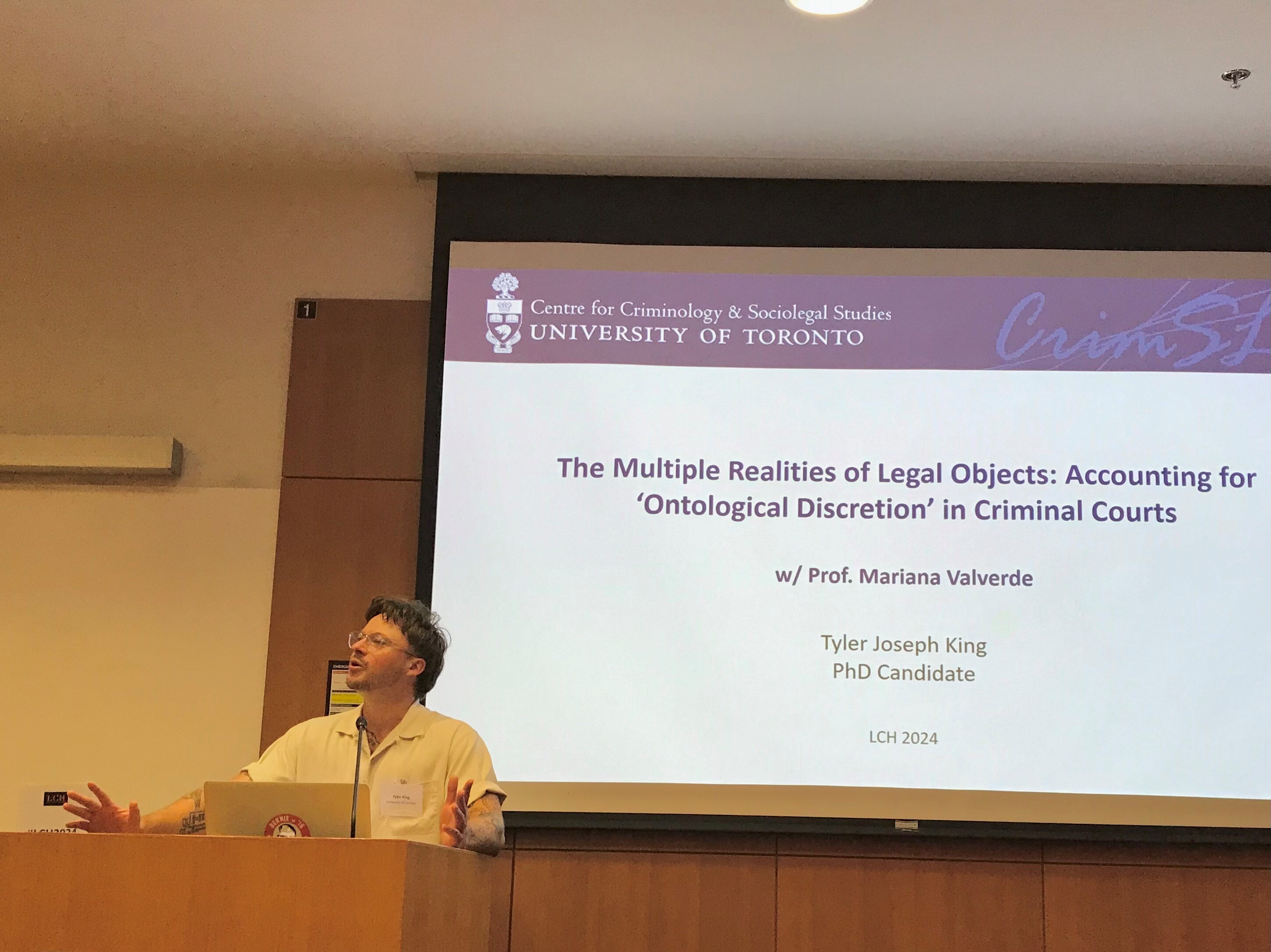CrimSL faculty and students returned recently from LCH 2024 "Senses of Law," the twenty-sixth annual conference of Law, Cultures and Humanities.
The conference took place May 17-18, 2024, at UBC's Allard School of Law in Vancouver, BC. ![]() The final schedule and program is available here.
The final schedule and program is available here.
CrimSL PhD candidate Tyler King (Supv: Catherine Evans) was one of two Graduate Coordinators for the conference. He says, "We were essentially in charge of helping graduate students navigate the conference, as well as connecting individual paper submissions with other like-minded scholars so that they could form a coherent, fulfilling panel."
CrimSL professor Catherine Evans chaired a session entitled "Seafaring and Global Legalities" on May 17.
Also on May 17, King presented The Multiple Realities of Legal Complexes: Ontological Discretion in Common-Law Courts at the session "Im/material interventions: law between the technical, scientific and legal senses of what there is and how to know it."

The presentation was based on the forthcoming paper (abstract shown below) King co-authored with CrimSL's Professor Mariana Valverde.
Abstract. Traditional legal scholarship has long focused on the exercise of discretion in all its forms; however, by borrowing from the analytical toolkits of science and technology studies (STS) and medical anthropology, we begin to document a yet untheorized form of discretion exercised by adjudicators: what we call courts’ ontological discretion. Much like the so-called ‘ontological turn’ taken in other adjacent fields, we begin to move beyond important but now rather mainstream inquiries into legal knowledges/knowledge production, shifting our focus toward what legal actors say the objects of their various knowledges actually are. By examining three objects/concepts from our own research – sleep, death, and drunkenness – we show how their lack of a universal, singular ontology affords, and occasionally even necessitates that adjudicators use their discretion to enact a coherent ontology in a given case. Thus, we also begin to document the widespread legal effects of 'ontological multiplicity' in the Canadian criminal courtroom.
King says:
Mariana and I realized, through our own separate research programs, that courts often have to define certain taken-for-granted concepts/objects.
For example, the concept of "death" can legitimately be defined as the cessation of the heartbeat or the cessation of neural activity. The problem is, these two ways of enacting death don't always match up. So if when/how somebody died is crucial to the case, and those two definitions are at odds, the courts may have to "choose" what death will be in a given case.
Importantly, however, we noticed that they don't choose the definition for all time and all cases, but rather they seem to prefer to protect their ability to swap definitions in and out, as needed and even on a case-by-case basis. This process of choosing what things will be is what we call "ontological discretion," and in this article we begin to show its widespread legal effects.
Professor Evans and Professor Gail Super participated in an Author-Meets-Readers session on the book "Thresholds of Accusation: Law and Colonial Order in Canada" by George Pavlich on May 18.


